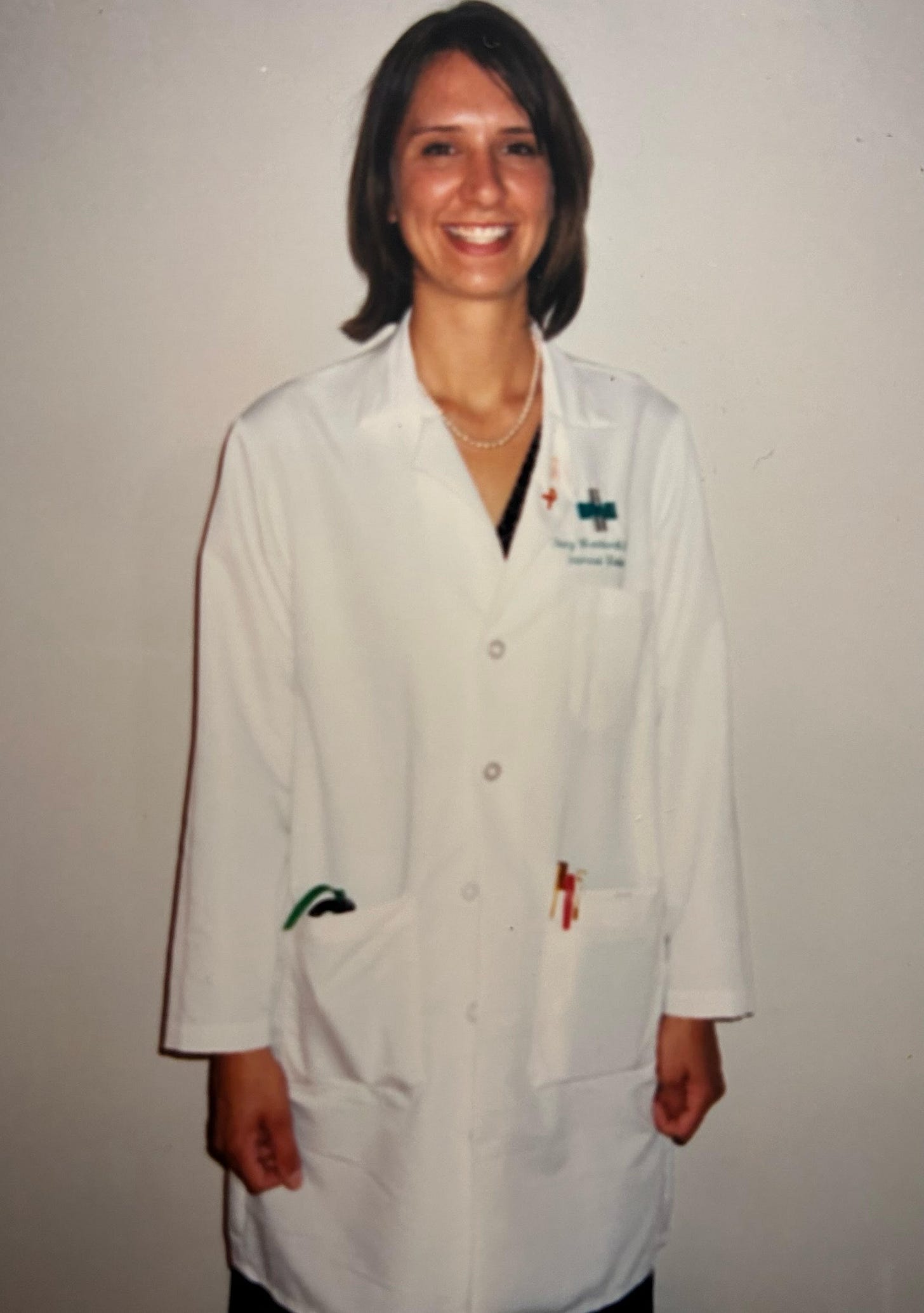The Thing About July 1 Is...
“Every intern makes mistakes. The important thing is neither to make the same mistake twice nor to make a whole bunch of mistakes all at once.”
― Samuel Shem, The House of God
Although most people mark fall as the beginning of school, medical training follows a different schedule. All new doctors start their training on July 1. Each July, hospitals and clinics across the country are filled with brand-spanking new doctors.
As I watch the interns at our hospital shrug on pristine white coats for the first time and graduating residents toss (or burn) their dirty grey ones on their way out the door, I am filled with nostalgia and empathy for these hopeful healers.
Like awkward freshmen wandering unfamiliar high school hallways, these newly empowered and untested physicians navigate hospital labyrinths to see patients awaiting their recommendations. The reality of this responsibility dawned on me like the blast of cold air escaping from sliding glass doors to the ER when I realized that it was up to me to diagnose and treat the chest pain in Room #2.
Important decisions rest on the shoulders of fresh-faced new doctors who, if they are anything like me, quickly realize the limits of book knowledge and soon appreciate that the wisdom of an experienced nurse can circumvent hours of reading. (#thankyounurses)
Due to the breadth and complexity of cancer diagnosis and treatment, medical education provides only glancing coverage of this enormous subject. Physician familiarity with cancer is so limited that a friend who writes questions for the family practice licensing exams shared with me recently that there are zero questions relating to cancer. And according to the American Board of Internal Medicine, only six per cent of the questions on their boards relate to cancer. Physicians in these specialties makeup about a quarter of our workforce and yet have little to no education about cancer. As a result, many new residents' only exposure is in training where they are charged with caring for the sickest few who are admitted for severe complications, pain control or a newly diagnosed advanced cancer resulting in a short hospitalization and death.
From the public’s perspective, research shows that people appear to be of “two minds” related to cancer, expressing an immediate sense of dread and death associated with the word followed almost immediately by a more rational understanding of the improvements in cancer care and the possibility of cure. It appears that “intellectually driven hope run[s] alongside, rather than displac[es], viscerally driven fear.”
Also thrown into the mix is institutional racism and public distrust which result in not all groups benefitting equally from significant medical advances. Public trust in science has reached an all-time low and at the same time, celebrities communicate their cancer diagnosis and treatment to millions of followers on Instagram and TikTok. With so many mixed messages, determining how we think, feel and deal with cancer is well…complicated. As an oncologist, I watch patients and families struggle with this every day
All these factors converge to form what I call “cancer culture.” From an anthropology standpoint, culture conveys our shared beliefs through spoken and unspoken norms. As people, we develop our own beliefs around cancer the first time someone we love has or dies from cancer, or perhaps the way people talk or don’t talk about a cancer diagnosis. As physicians, we learn about it from our patients AND from our personal experiences.
When I first encountered cancer patients and the team who cared for them on my 3rd-year rotation with the Heme Onc B Team, I knew I had found my people. That environment spoke to me in a way that resonated deeply and that I still love to this day. I knew I belonged, and at the end of that month, I decided oncology was the place for me.
As I start this newsletter, I invite you to think about where you first encountered cancer. What was your first experience with cancer like? Or maybe you have a distinct memory of your first week as an intern. If you feel comfortable, post in the comments below and I look forward to reading them. If not, absolutely no worries. Thanks for reading this far and please share this with a friend if you are so moved.
On My Mind:
Is it OK to laugh about cancer? I’ve been thinking about this old NYT piece a lot lately.
The Comprehensive Cancer Survivorship Act has been reintroduced. Call your congressional representatives to tell them how important it is to specifically fund cancer survivorship research and care. And then call them again. And again.
The Hardy Life - A dear friend died last month a few weeks after being diagnosed with AML. Her husband is keeping her memory alive on their family blog. I miss you, Chrissy.








